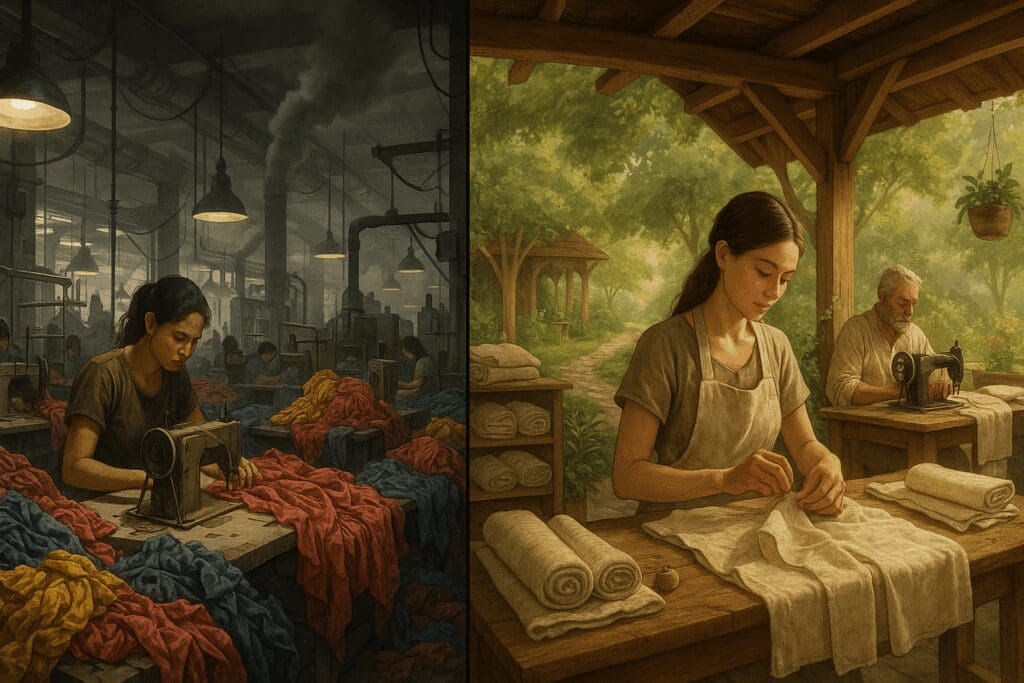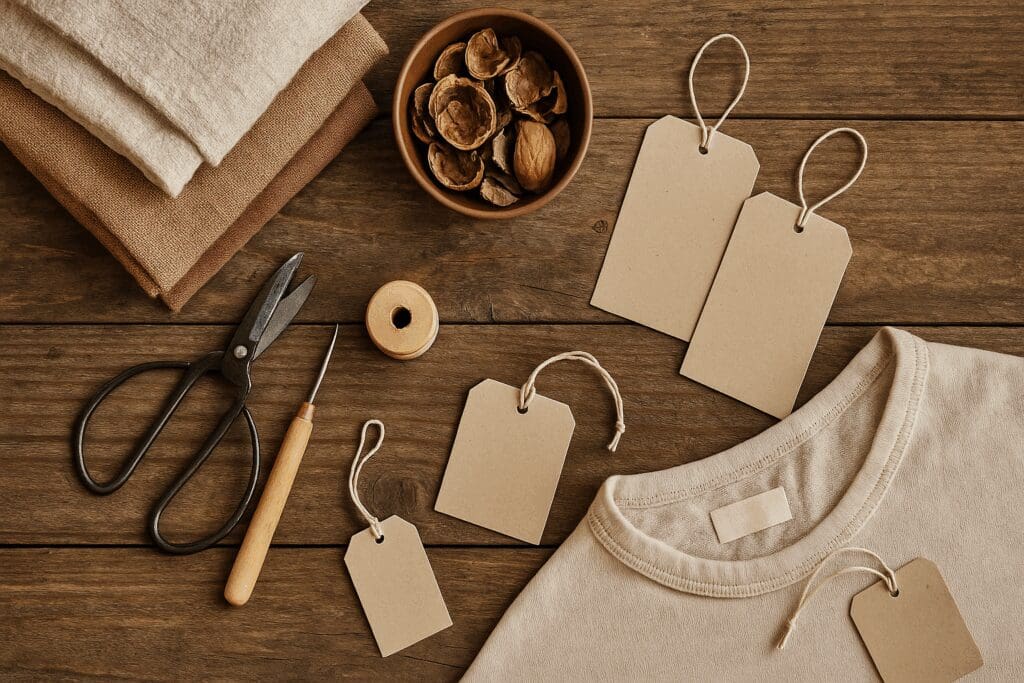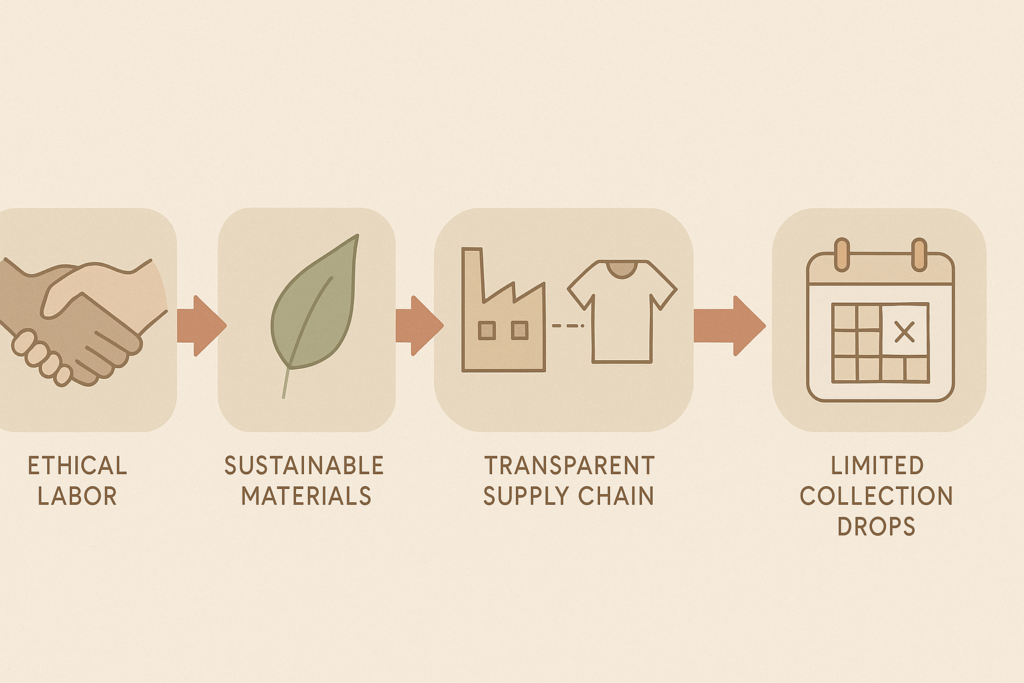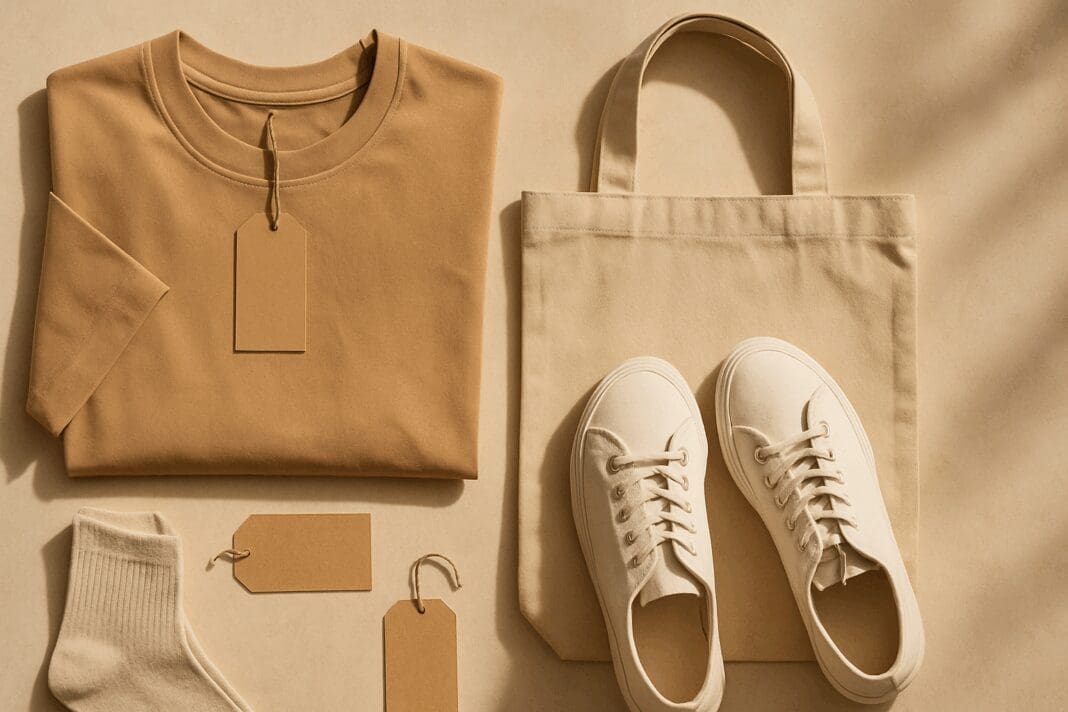In a world increasingly dominated by rapid consumption and throwaway culture, the demand for ethical alternatives has grown louder and more urgent. The fashion industry, long criticized for its environmental and labor practices, has undergone a seismic shift as conscious consumers seek more responsible ways to shop. Amid this cultural transformation, a new wave of affordable non fast fashion brands has emerged, offering stylish yet sustainable clothing that doesn’t compromise on ethics or affordability. These brands bridge the gap between mindful manufacturing and attainable pricing, helping people align their values with their wardrobes.
For consumers seeking clothes that are not fast fashion, the landscape has evolved beyond expensive, niche boutiques. Today, many brands have embraced transparency, slow fashion principles, and fair labor practices while still keeping their price points within reach. This rise of affordable clothing brands that are not fast fashion represents a powerful antidote to the environmentally damaging, exploitative model of traditional fast fashion. These labels are proving that sustainability can be inclusive, aspirational, and beautifully wearable.
You may also like: The Ultimate Guide to Fair Trade Apparel: A Powerful Shift Toward Sustainable Fashion

Understanding the Rise of Non Fast Fashion
To understand the value of non fast fashion brands, one must first grasp the cost of fast fashion itself. This business model, characterized by mass production, low wages, synthetic fabrics, and high-speed trend cycles, has contributed to a number of global crises—from textile waste clogging landfills to rivers dyed with toxic chemicals. Workers, often in developing nations, bear the brunt of exploitation, working in dangerous conditions for poverty wages. The social and environmental toll is staggering, and consumers are becoming more aware of the consequences with each investigative report and viral documentary.
In response, the non fast fashion movement has gained momentum. This movement emphasizes longevity, craftsmanship, and transparency. Instead of churning out micro-trends every week, slow fashion brands often produce timeless designs that are built to last. They use sustainable materials, such as organic cotton, hemp, or TENCEL™, and prioritize ethical supply chains. For shoppers who care about how their clothes are made, supporting affordable non fast fashion brands is both a practical and ethical choice.

What Makes a Brand “Non Fast Fashion”
Defining what constitutes a non fast fashion brand requires looking beyond just aesthetic or marketing slogans. A true non fast fashion brand adheres to several core principles: ethical labor practices, sustainable materials, and responsible production methods. This includes fair wages, safe working conditions, minimal environmental impact, and a commitment to reducing waste. Many also incorporate circular economy models, encouraging recycling, upcycling, or clothing take-back programs.
Transparency is key. Brands that openly share their supply chain information, sourcing details, and sustainability metrics are far more trustworthy than those relying on vague greenwashing. Certifications such as GOTS (Global Organic Textile Standard), Fair Trade, OEKO-TEX®, and B Corp offer further credibility. In short, non fast fashion brands embrace holistic responsibility—to people, the planet, and consumers.
Consumers often equate sustainability with expense, but this is a misconception. While traditional sustainable fashion brands carried hefty price tags, today’s market includes slow fashion brands affordable for the everyday consumer. It’s about conscious consumption over accumulation—investing in fewer, better-quality pieces that offer long-term value.

Why Affordability Matters in Sustainable Fashion
Accessibility is one of the most pressing issues within the sustainable fashion movement. If ethical clothing remains out of financial reach for most consumers, it risks becoming an elitist movement. That’s where affordable brands that are not fast fashion play a vital role. These companies are democratizing sustainability, making it available to a broader audience and dispelling the notion that eco-conscious fashion is a luxury.
Affordability in sustainable fashion doesn’t mean sacrificing ethics or quality. Instead, it often involves strategic design choices, direct-to-consumer models, and streamlined operations that cut costs without exploiting labor or the environment. By focusing on essential wardrobe staples, minimizing waste, and building strong supplier relationships, these brands can offer competitive prices.
Moreover, the value proposition extends beyond just price. Consumers who invest in clothing brands that are not fast fashion often experience better fit, durability, and design versatility. These clothes age gracefully, resisting the threadbare fate of cheap synthetic garments, and thus reduce the long-term cost per wear.

Essential Affordable Non Fast Fashion Brands Leading the Movement
Let’s explore ten of the most influential, accessible, and ethical clothing labels that exemplify the principles of non fast fashion. These brands offer stylish, responsible alternatives to mass-market retailers while maintaining price points that appeal to the modern budget-conscious shopper.
Pact: Organic Basics Made Accessible
Pact is one of the best-known names among affordable non fast fashion brands, celebrated for its dedication to organic cotton and Fair Trade practices. The brand offers a wide range of basics—from underwear and loungewear to dresses and joggers—all made from GOTS-certified organic cotton. What sets Pact apart is its price point, which remains comparable to many conventional fast fashion labels.
By focusing on direct-to-consumer sales and simple, wearable styles, Pact eliminates unnecessary markups and passes the savings to customers. Their factories uphold rigorous standards for fair wages and safe working conditions, and the brand offsets its carbon footprint through reforestation initiatives. For anyone looking for brands like Pact, these qualities serve as a benchmark for responsible affordability.
Able: Ethical Style with a Mission
Able is a women-run brand committed to ending generational poverty by investing in women. Founded in Nashville, Able began with handmade scarves and now offers a full fashion line including denim, footwear, leather bags, and apparel. The brand publicly publishes wages for its workers, a rare move that underscores its radical transparency.
Able’s prices are intentionally set to be inclusive while maintaining quality craftsmanship. By focusing on long-term impact rather than short-term profit, Able challenges the prevailing logic of fast fashion. It also ensures that ethical production doesn’t come with an intimidating price tag, making it one of the top affordable clothing brands that are not fast fashion.
Girlfriend Collective: Inclusive, Recycled Activewear
Girlfriend Collective has made waves with its size-inclusive, eco-conscious activewear made from recycled water bottles and fishing nets. Their colorful leggings, sports bras, and outerwear pieces combine performance with sustainability in a way that resonates with environmentally savvy fitness lovers.
Beyond materials, the brand’s commitment to fair labor and transparency makes it a leader among trendy non fast fashion brands. Their prices, though slightly higher than typical fast fashion workout lines, reflect the quality, inclusivity, and ethical sourcing behind each item. Girlfriend Collective proves that slow fashion brands affordable to diverse consumers can also be stylish and performance-driven.
Quince: Affordable Luxury with Ethical Roots
Quince positions itself as a brand that delivers luxury without the markup. Offering cashmere sweaters, silk blouses, and leather goods at surprising price points, Quince maintains affordability through a lean, direct-to-consumer model. The brand partners with factories that meet global sustainability and labor standards, emphasizing both craftsmanship and transparency.
Quince challenges the idea that premium materials must be prohibitively expensive. Its offerings are designed for longevity, with minimalist aesthetics that defy trend cycles. For those seeking clothing brands that are not fast fashion yet feel elevated, Quince is a compelling option.
Tentree: Every Purchase Plants a Forest
Tentree combines eco-activism with casual, earth-toned style. For every item sold, the brand plants ten trees, with a goal of reaching one billion trees by 2030. Their clothing is made from sustainable fabrics like organic cotton, hemp, and TENCEL™, and designed for comfort and versatility.
As one of the best non fast fashion brands for outdoor enthusiasts and nature lovers, Tentree is transparent about its impact. With accessible price points and ethical production practices, it appeals to conscious consumers who want their purchases to reflect their environmental values. Tentree’s model embodies the ethos of slow fashion brands affordable for the masses.
Tradlands: Tailored Staples with Timeless Appeal
Tradlands focuses on creating timeless women’s clothing that prioritizes fit, fabric, and form. Its collections lean into menswear-inspired cuts and muted palettes, offering high-quality staples like button-down shirts and cozy knits. Made in small batches, Tradlands pieces are designed to last season after season.
While slightly more premium than some competitors, Tradlands still qualifies among affordable non fast fashion brands due to the longevity and versatility of its designs. The brand avoids seasonal sales and flash discounts in favor of consistent pricing and slow, intentional growth.
People Tree: A Pioneer in Fair Trade Fashion
UK-based People Tree has been a leader in ethical fashion for over three decades. As one of the first brands to receive the World Fair Trade Organization product label, it helped lay the foundation for modern slow fashion. People Tree combines traditional artisan techniques with contemporary silhouettes, offering everything from workwear to weekend essentials.
Their commitment to organic fibers, chemical-free dyeing, and worker empowerment make them a gold standard for affordable clothing brands that are not fast fashion. By partnering with social enterprises in the Global South, People Tree supports communities while delivering beautifully made garments to global audiences.
Kotn: Cotton That Gives Back
Kotn is a Canadian brand redefining the supply chain for cotton basics. By working directly with farmers in Egypt, Kotn ensures fair wages and sustainable growing practices while supporting local education initiatives. Their garments include elevated essentials like tees, dresses, and sweaters, all made from ethically sourced cotton.
Kotn’s clean designs and ethical operations resonate with those seeking non fast fashion brands that blend purpose with polish. With mid-range pricing and a transparent business model, Kotn is steadily gaining recognition as a leader among clothes that are not fast fashion.
Mata Traders: Handmade and Heartfelt
Mata Traders partners with women-led cooperatives in India and Nepal to create vibrant, handmade apparel with a global twist. Using fair trade principles, traditional artisan techniques, and sustainable materials, Mata Traders offers dresses, tops, and accessories that tell a story.
The brand emphasizes cultural preservation, slow production cycles, and community development, distinguishing itself among trendy non fast fashion brands. With cheerful prints and inclusive sizing, Mata Traders provides ethical style without the designer price tag.

The Broader Impact of Supporting Affordable Non Fast Fashion Brands
Supporting non fast fashion brands goes beyond individual purchasing decisions. It represents a commitment to systemic change in an industry long driven by unsustainable practices. Every time a consumer chooses clothing brands that are not fast fashion, they vote for a different future—one that values people and the planet over profit and speed.
Affordable non fast fashion brands are proof that ethical shopping doesn’t have to be elitist. They offer attainable alternatives to consumers who want to make better choices without overhauling their entire lifestyle. These brands emphasize quality over quantity, encouraging shoppers to buy less but better. This mindset shift is crucial for building a more responsible, resilient fashion ecosystem.
Moreover, as demand for slow fashion grows, larger retailers are taking notice. The success of slow fashion brands affordable to broader demographics sends a strong market signal: sustainability sells. This ripple effect has the power to influence supply chains, improve labor standards, and reduce environmental harm at scale.

Frequently Asked Questions About Affordable Non Fast Fashion Brands and Sustainable Style
How can I tell if a brand is truly non fast fashion or just greenwashing?
Distinguishing genuine non fast fashion brands from those using sustainability as a marketing ploy requires a deeper look into their operations. True non fast fashion labels will provide transparency about their supply chains, including factory locations, labor policies, and certifications. Look for third-party verifications such as Fair Trade, GOTS, OEKO-TEX®, or B Corp, which help validate ethical claims. Beyond certifications, investigate how often they release new collections—brands focused on slow fashion tend to avoid high-frequency trend drops. Lastly, pay attention to language: if a company uses vague terms like “eco-friendly” without specifics or quantifiable goals, it may be masking conventional practices behind a green facade.
What makes affordable clothing brands that are not fast fashion more accessible today than in the past?
Several industry changes have helped make affordable clothing brands that are not fast fashion more accessible to everyday consumers. Direct-to-consumer models have eliminated intermediaries, allowing brands to keep quality high and prices reasonable. Additionally, advances in fabric technology, such as regenerative TENCEL™ or closed-loop modal, have reduced the cost of sustainable textiles. Many emerging designers are also adopting local, small-batch production strategies, which lower overhead without compromising ethics. Increased consumer demand has pushed more companies to scale sustainably, making affordability possible through volume. Combined, these innovations mean ethical fashion is no longer limited to boutique price points or niche shoppers.
Why are brands like Pact gaining popularity among young professionals and students?
Brands like Pact resonate with young consumers who want ethical alternatives that align with tight budgets and busy lifestyles. Their focus on GOTS-certified organic cotton, everyday basics, and Fair Trade wages appeals to values-driven shoppers seeking simplicity and quality. Additionally, Pact’s streamlined aesthetic is highly adaptable—ideal for minimalist wardrobes and capsule collections. Its price points are comparable to mainstream retailers, yet it offers far more in terms of transparency and social impact. Many customers also appreciate the brand’s carbon offsetting initiatives and recyclable packaging, which reflect broader concerns about climate change among Gen Z and Millennials.
What is the long-term financial benefit of buying clothes that are not fast fashion?
Although upfront costs may be marginally higher, clothes that are not fast fashion offer substantial savings over time. These garments are built to last, reducing the need for frequent replacements due to wear, shrinkage, or pilling. Their timeless cuts also bypass trend expiration, extending the functional life of each piece. Over time, investing in well-constructed, ethically made basics minimizes waste and wardrobe clutter, creating a more curated and cost-effective closet. Moreover, non fast fashion brands often offer repair services or recycling programs, further enhancing the longevity and value of your purchase.
How are slow fashion brands affordable without compromising on ethics or quality?
Slow fashion brands affordable to the average shopper succeed through efficiency and transparency rather than exploitation. These companies often opt for fewer seasonal releases, enabling better planning and reducing overproduction. Some leverage small, local supply chains, cutting logistics costs while maintaining traceability. Ethical wages are accounted for in initial pricing models, not added on as premiums. Many also adopt low-markup structures and rely on word-of-mouth or social media marketing instead of expensive ad campaigns. These strategic savings allow them to pass cost benefits to consumers without undercutting worker well-being or environmental commitments.
What are some of the psychological benefits of supporting non fast fashion brands?
Supporting non fast fashion brands can foster a deeper sense of satisfaction, intention, and connection in one’s shopping habits. Consumers often report greater emotional attachment to garments purchased ethically, knowing they were made with respect for people and the planet. This mindful consumption contributes to reduced buyer’s remorse, as purchases are based on alignment with personal values rather than impulse. Psychologically, it can also diminish the stress associated with clutter or fashion fatigue, as ethical wardrobes typically prioritize versatility and longevity. Ultimately, shopping this way transforms clothing into a meaningful reflection of identity rather than fleeting indulgence.
How do non fast fashion stores adapt to trends without overproducing or creating waste?
Non fast fashion stores often reinterpret trends through a timeless lens rather than chasing viral aesthetics. Many focus on adaptable silhouettes, muted palettes, and layering pieces that can be worn year-round. Some brands incorporate pre-order systems or limited-edition drops to gauge demand before production, minimizing overstock and waste. Others use deadstock fabrics or recycled materials to create fashion-forward items sustainably. In contrast to trend-saturated retailers, these companies invest in design research to identify lasting patterns that outlive the trend cycle, providing longevity without sacrificing contemporary appeal.
What role do community and social impact play in the success of the best non fast fashion brands?
Community engagement and social empowerment are central pillars of the best non fast fashion brands. These companies often partner with local artisans, indigenous cooperatives, or marginalized communities, ensuring that profits directly support social upliftment. Many also reinvest a portion of revenue into educational programs, healthcare, or environmental restoration. This reciprocal model builds brand loyalty and attracts customers who want their dollars to make a difference beyond personal consumption. Additionally, brands often use storytelling to highlight the people behind each garment, creating emotional connections that reinforce ethical shopping behaviors. These narratives foster not only transparency but also cultural appreciation and mutual respect.
Why are trendy non fast fashion brands becoming more prevalent on social media?
Trendy non fast fashion brands are gaining momentum online due to the growing alignment between digital culture and ethical consciousness. Influencers and micro-creators are using platforms like TikTok and Instagram to showcase sustainable hauls, upcycled fashion, and capsule wardrobes. This trend reframes sustainability as aspirational rather than restrictive, making it more appealing to younger audiences. Brands collaborate with ethical content creators to spread authentic, values-driven messaging rather than pushing volume through paid ads. Moreover, visually pleasing designs and transparent messaging make these brands inherently “shareable,” allowing social media to act as a low-cost, high-impact promotional channel.
How do affordable non fast fashion brands contribute to climate resilience and global sustainability goals?
Affordable non fast fashion brands play a critical role in advancing global sustainability agendas, including the United Nations’ Sustainable Development Goals. By minimizing textile waste, reducing carbon emissions, and limiting water pollution, these brands help address environmental degradation at the source. Many also participate in regenerative agriculture, closed-loop manufacturing, or biodiversity conservation programs. Their support for fair labor practices promotes economic equality and gender empowerment—two core pillars of sustainable development. Most importantly, they offer consumers a practical, scalable path to climate action, proving that meaningful change can be made not just by governments or corporations, but by individuals through everyday choices.
Final Thoughts on Making Sustainable Style Effortless
Making sustainable fashion choices should not feel like an exclusive privilege. Thanks to the emergence of affordable non fast fashion brands, more people can now access clothing that aligns with their ethical, environmental, and stylistic values. These labels show that it is possible to look good, feel good, and do good without breaking the bank.
Choosing non fast fashion is not about perfection but progress. Whether through organic fabrics, fair wages, or carbon-neutral shipping, each of the ten brands profiled here contributes meaningfully to a better industry. By supporting clothing brands that are not fast fashion, consumers can help dismantle harmful systems and build a culture of mindful consumption.
In an age where convenience often trumps conscience, these brands offer a refreshing alternative. They make it easy for shoppers to prioritize sustainability without compromising on design or affordability. As the fashion industry continues to evolve, it is brands like these—affordable, ethical, and forward-thinking—that will lead the way toward a more just and stylish future.
Further Reading:
21 of the best affordable ethical clothing brands in the UK in 2024
23 More Affordable Sustainable Fashion Brands
These 17 Slow Fashion Brands Will Help You Ditch Fast Fashion



